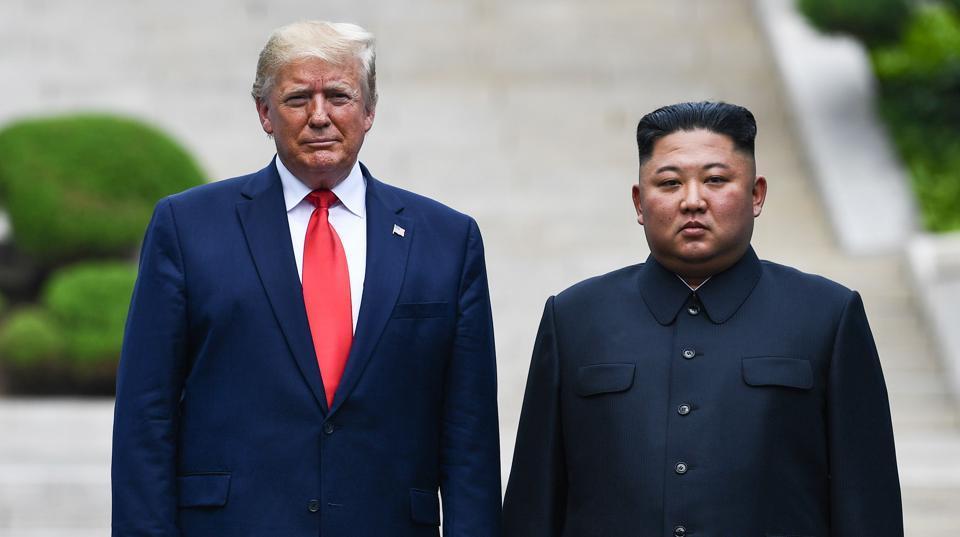American National Security: Tanks vs. Intellect in the Trump Era
archive


Watching fireworks atop a Sherman tank in Normandy, France on Thursday, June 6, 2019. (Rafael Yaghobzadeh/AP)
American National Security: Tanks vs. Intellect in the Trump Era
"We have some incredible equipment, military equipment, on display—brand new. And we're very proud of it.... We have the brand new Sherman tanks."1
US President Donald J. Trump, July 2, 2019
"....it remains true that the highest achievements of the Greek art of war are more to be found in the triumph of mind over mind, than in the triumph of mind over matter."
F.E. Adcock, The Greek and Macedonian Art of War
President Donald Trump's contrary July 4th orientation notwithstanding, the core military problems that the United States faces in the years ahead will not yield to any assortment of advanced weapons, including even "brand new Sherman tanks." These daunting problems can be faced, however, by recalling and refining the Greek and Macedonian concept of war. This ancient view already emphasized intellect or "mind," and also credibly established (though unwittingly) a useful paradigm for all future defense planners.
There are basic lessons here. By acknowledging this long-validated view of war, Mr. Trump could much better appreciate that configurations of ordnance, though obviously still important, can represent only a secondary or reflected national security posture. Going forward, America's primary "war-winning"2 orientations should focus on remediating certain worrisome deficiencies along three dimensions of US defense policy: (1) historical understanding; (2) conceptual guidance; and (3) strategic doctrine. Because these dimensions are overlapping, interpenetrating, and sometimes "synergistic," American strategists will need to cope with literally unprecedented levels of analytic complexity. Bewildering as they may appear, these levels must be confronted and overcome.
Some analytic points are obvious. A substantially improved knowledge of history could gainfully inform President Trump's still-plausible security policies. Thus, hyperbolic or seat-of-the-pants tweets (routinely unchecked for elements of accuracy) can be no substitute for thorough-going applications of intellect. The ancient Greeks and Macedonians were correctly intent upon describing all war as a multi-layered contest of "mind over mind," and never just a narrowly tactical struggle of "mind over matter." It was a stunningly original conception that remains valid today.
What next? First, it's distinctly most important that our leaders start asking the right questions.
President Trump and his pertinent advisors should not now be inquiring "How can we kill more of the enemy?" (or merely hint at such prowess with military parades or photo opportunities), but instead should ask: "What (precisely) are our ongoing and prospective wars fundamentally about?"3
They should also begin to query, as part of a steadily engaging dialectic, "What strategic factors are recurrent, enduring, and most plainly consequential?" In sum, they will need to ask: "How shall US military forces best apply vital considerations of "mind' to our present and still-impending conflicts?"
At its most basic or “molecular” level, what we have typically witnessed in assorted historical theatres of military engagement is the malignant tribalism of an anarchic world order, and, correspondingly, the fusion of sectarian violence with incessant claims of group superiority. Now, this patently dreadful observation applies equally to certain sub-state (especially Jihadist) terrorist groups, and to various state-sub-state "hybrids." Where can one find evidence of the Trump administration's awareness of "hybridized" adversaries? For the moment, let us be candid, it appears that any such lucid awareness would call for too-great levels of reasoning power, that is, for much greater depositions of "mind" than are currently available.
Faced with the dizzying unreason of already-sovereign and sovereignty-seeking “tribes"—states and sub-state proxies that may freely extend their variously compelling promises of inclusion and immortality in exchange for “martyrdom”—our American nation stands little chance of achieving either protracted stability or optimum security. What next? What should be done by President Trump to escape from his conspicuously limiting mind-set, one that very crudely identifies American military prowess with bombs, tanks, and ever-mounting enemy corpses? At a minimum, the correct answer must lie in seeking substantially higher levels of refined intellectual counsel that would reach beyond the confines of the Pentagon and military academies.
After all, preparing for nuclear conflict involves more than military calculation. What’s more, not a single general officer, however dedicated, capable, or heroic, has encountered even a minute's experience of nuclear war. Because any such war would be sui generis, there is ample good reason to shape our forward-looking strategic doctrine with the more widespread assistance of distinguished mathematicians, physicists, historians, and political scientists. It was in the most esoteric groves of academe, not on any conventional battlefield, that America's original Cold War nuclear strategy was most coherently forged. The roster of leading strategic thinkers from this era included not only J. Robert Oppenheimer (who headed the Manhattan Project), but also Herman Kahn, Albert Wohlstetter, and Bernard Brodie.
...preparing for nuclear conflict involves more than military calculation. What’s more, not a single general officer, however dedicated, capable, or heroic, has encountered even a minute's experience of nuclear war.
Apropos of the requirements of challenging strategic thought, some semblance of an original fusion will need to be fashioned in Washington. This sobering merger references the increasingly plausible "marriage" of atomic capability with enemy leadership irrationality. Presently, such an ominous combination is most plainly problematic in North Korea, Iran, and perhaps even a post-coup Pakistan. Significantly, no such combination has been rendered any less concerning by President Trump's few un-heroic steps taken into North Korean territory or by his withdrawing the United States from the 2015 JCPOA Agreement with Iran. Only the contrary is true.
In Pyongyang, the manifest risks to the United States do not include a regime inspired by any deeply religious expectations of power over death, or of some related promises of immortality. Regarding Kim Jong Un, President Trump and his counselors must very carefully bear in mind that North Korea is fundamentally different from Syria, Iraq, Afghanistan, and now also Yemen. While in the latter four cases Mr. Trump's worst case scenario would likely be some evident lack of operational progress, in North Korea an American failure could possibly invite an unstoppable nuclear exchange.4
Although it must always be scientifically meaningless to assign specific probabilities to unique events (mathematical probabilities are necessarily based upon the determinable frequency of past events), such an exchange cannot simply be wished away or casually dismissed out of hand. This is because Washington and Pyongyang could easily find themselves in the midst of competitive risk-taking for "escalation dominance," a confusing process that quickly spins out of control. To avoid finding himself in such a more-or-less unexpected and potentially irremediable situation, President Trump should be capably advised about Kim Jung Un's presumptive rationality.

Donald Trump with North Korean President Kim Jong Un in the Joint Security Area of Panmunjom in the Demilitarized Zone (DMZ) on June 30, 2019. (Photo credit: AFP)
In other words, to prudently and properly wrest "escalation dominance" from his similarly determined North Korean opponent, Donald Trump would first need to decide whether Kim Jong Un is rational, irrational, or feigning irrationality. Less calculable in any such inherently unstable scenario is (a) whether this sitting American president would himself be rational, irrational, or feigning irrationality; and (b) whether certain precise interactions or synergies could emerge from all plausible dispositional combinations.
In the best interests of supporting US national power, this president can never hope to “fix” or dampen particular conflicts before he has better understood the underlying psychological orientations of our relevant foreign adversaries. In this vast and fractionated "arena" (President Trump's own expressly preferred metaphor), passion could sometime trump both reason and rationality. It follows that there might be even more to learn about "mind over mind" disputations from Kierkegaard, Schopenhauer, Nietzsche, Dostoyevsky, Jung, and Freud than from contemporary military science.
One must always remember: There has never been a nuclear war.
On June 4, 2017, then National Security Advisor H.R. McMaster wrote in the Wall Street Journal that President Trump "has a clear-eyed outlook that the world is not a ‘global community’, but an arena where nations, nongovernmental actors and businesses engage and compete for advantage." In a note of specifically intended "realism," McMaster added: "Rather than deny this elemental nature of international affairs, we embrace it." Still, there is nothing pragmatic or promising in this casual dismissal of human and national interdependence. On the contrary, such cynical doctrine starkly reinforces the evident shallowness of President Donald Trump's crude over-emphasis on weapons and manpower per se.
No Trump Doctrine of "everyone for himself" can ever hope to compensate for the conspicuous absence of understanding that there exists a latent inner meaning to both world order5 and corollary enemy calculation. Uncovering this crucial inner meaning on issues of rationality and irrationality will require, inter alia, the following elusive trait: A steady and systematic willingness to examine the specific preference hierarchies of our immediate enemies.
this president can never hope to “fix” or dampen particular conflicts before he has better understood the underlying psychological orientations of our relevant foreign adversaries.
“Just wars,” argued Dutch scholar Hugo Grotius back in the seventeenth century, can have a markedly urgent place in the world. They must, however, be fought only to protect the innocent, and not to slaughter certain anonymous “others” in uselessly visceral calculations of military advantage.6
Although still fully unrecognized in the Trump White House, there is no greater power in world affairs than power over death. From the beginning, violence in world politics has been driven by more-or-less well-orchestrated "tribal" conflicts, both between and within nations. Always, in one form or another, the specific danse macabre extends a “sacred” promise to reward the "faithful" with reassuringly complete freedom from earth-bound mortality.7 There can never be a more persuasive promise.
The lethal and irresistible exchange of violence for sacredness is not unique to our present historical moment. It was already painfully evident in the seemingly interminable wars of ancient Greece and Rome, during the Crusades and much later in the Third Reich. Now it can be readily detected not only among our various Islamist/Jihadist enemies, but also in "religion-free" North Korea, where tens of thousands of troops enthusiastically (and sincerely) pledge their lives to protect the Great Leader.
Seeing requires distance. Up close and personal with statistics, charts, and numerical calculations, President Trump and his advisors may still misunderstand the most genuinely animating rhythms of enemy war-planning. America's relentless foes can never be reliably influenced by "brand new tanks," neatly "rational" proposals for peace, or even the prospectively annihilatory properties of highly destructive weapons technologies. In the final analysis, only when this current American president can fully understand that each and every troublesome source of global or regional instability must first be countered by suitably refined expressions of mind will the United States be able to safeguard its core national security. It's about intellect, not 4th of July oratory or mothballed tanks on parade.
1. “Trump Says Tanks Will Be on Display on July 4.” New York Times, July 1, 2019. Available at: https://www.nytimes.com/2019/07/01/us/politics/trump-tanks-july-4th.html
2. The term "war winning" is used here to indicate a general orientation to conflict, and not in the more traditional sense of achieving a tangible victory or avoiding measurable defeat. See, by this author: http://yaleglobal.yale.edu/content/futile-goal-winning-wars
3. Agamemnon queries in The Oresteia: "Where will it end"? Aeschylus also inquires, "When will it all be lulled back into sleep, and cease, the bloody hatreds, the destruction?" See also the classic Clausewitzian answer: "War is always about the political object." (On War).
4. See: Louis René Beres and LT.COL/IDF (ret.) Yoash Tsiddon-Chatto, "Reconsidering Israel's Destruction of Iraq's Osiraq Nuclear Reactor," Menachem Begin Heritage Center, Israel's Strike Against the Iraqi Nuclear Reactor, June 7, 1981, Jerusalem, Israel, September 2003, pp. 59-60.
5. The concept of "world order" as an organizing dimension of academic scholarship rose to prominence in the 1960s and 1970s. This writer was an original participant in the World Law Fund's World Order Models Project at Yale Law School and Princeton (WOMP), and has published several early books within the genre. See, for example, Louis René Beres, America Outside the World: The Collapse of U.S. Foreign Policy (1987); Louis René Beres, People, States and World Order (1981); Louis René Beres, (with Harry R. Targ), Planning Alternative World Futures: Values, Methods and Models (1975); Louis René Beres, Reason and Realpolitik: U.S. Foreign Policy and World Order (1984); Louis René Beres (with Harry R. Targ) Reordering the Planet: Constructing Alternative World Futures (1974); Louis René Beres, The Management of World Power (1973); and Louis René Beres, Transforming World Politics: The National Roots of World Peace (1975).
6. Grotius had divided wars into declared conflicts, which were legal, and undeclared wars, which were not. By the beginning of the twentieth century, the position that war obtains only after a conclusive declaration of war by one of the parties was codified by Hague Convention III.
7. See Eugene Ionesco, Journal (II), Encounter, May 1996, at 25. The related idea of death as a zero-sum commodity is captured also by psychologist Ernest Becker's illuminating paraphrase of Nobel laureate, Elias Canetti: "Each organism raises its head over a field of corpses, smiles into the sun, and declares life good." Ernest Becker, Escape from Evil, 2 (1975). Similarly, psychologist Otto Rank: "The death fear of the ego is lessened by the killing, the sacrifice, of the other; though the death of the other, one buys oneself free from the penalty of dying, of being killed." Otto Rank, Will Therapy and Reality, 130 (Knopf, 1950/1936).



